Kobe Bryant: Reflections on a cold-blooded career

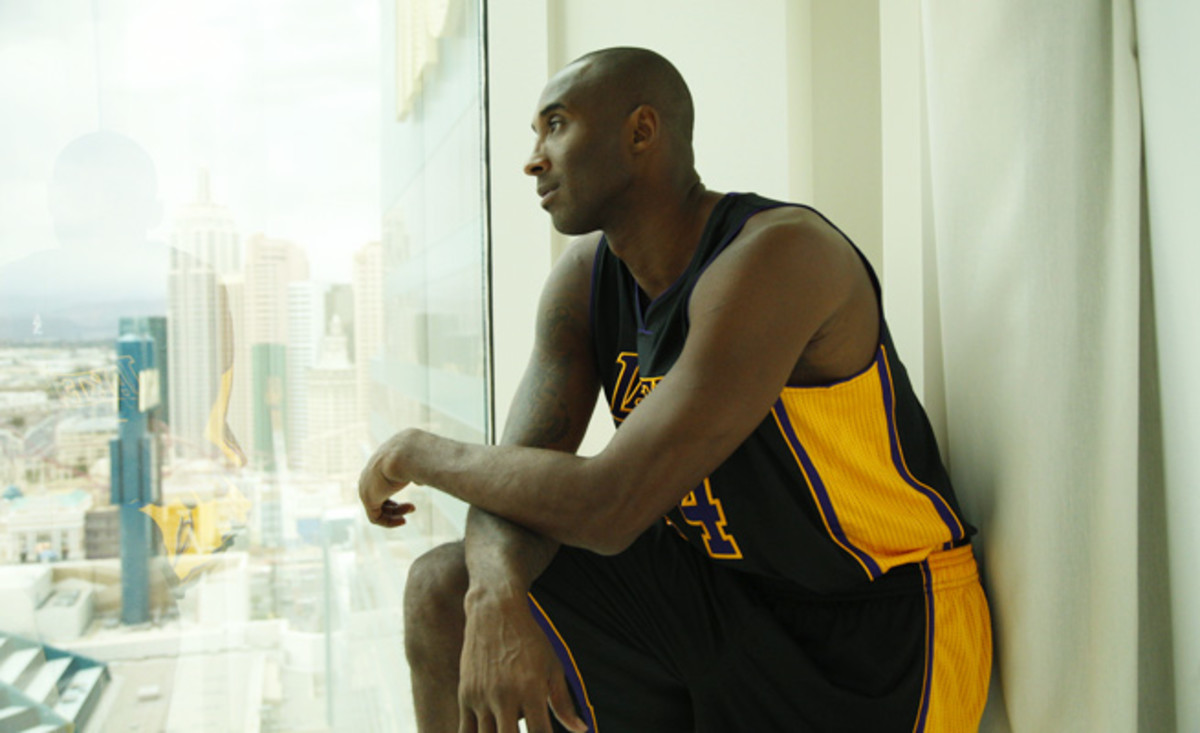
There it is, one more brushstroke applied to the intricately drawn image of Kobe Bean Bryant, so lifelike that kids ask what kind of potion he drinks on the bench, players wonder if they can bike through the desert with him in the middle of the night, and 5,000 people show up at the Nokia Theater in Los Angeles simply to watch him give Jimmy Kimmel an hourlong interview. "Everybody wants to know what's inside of him," says Lakers center Robert Sacre, who was one of the 5,000.
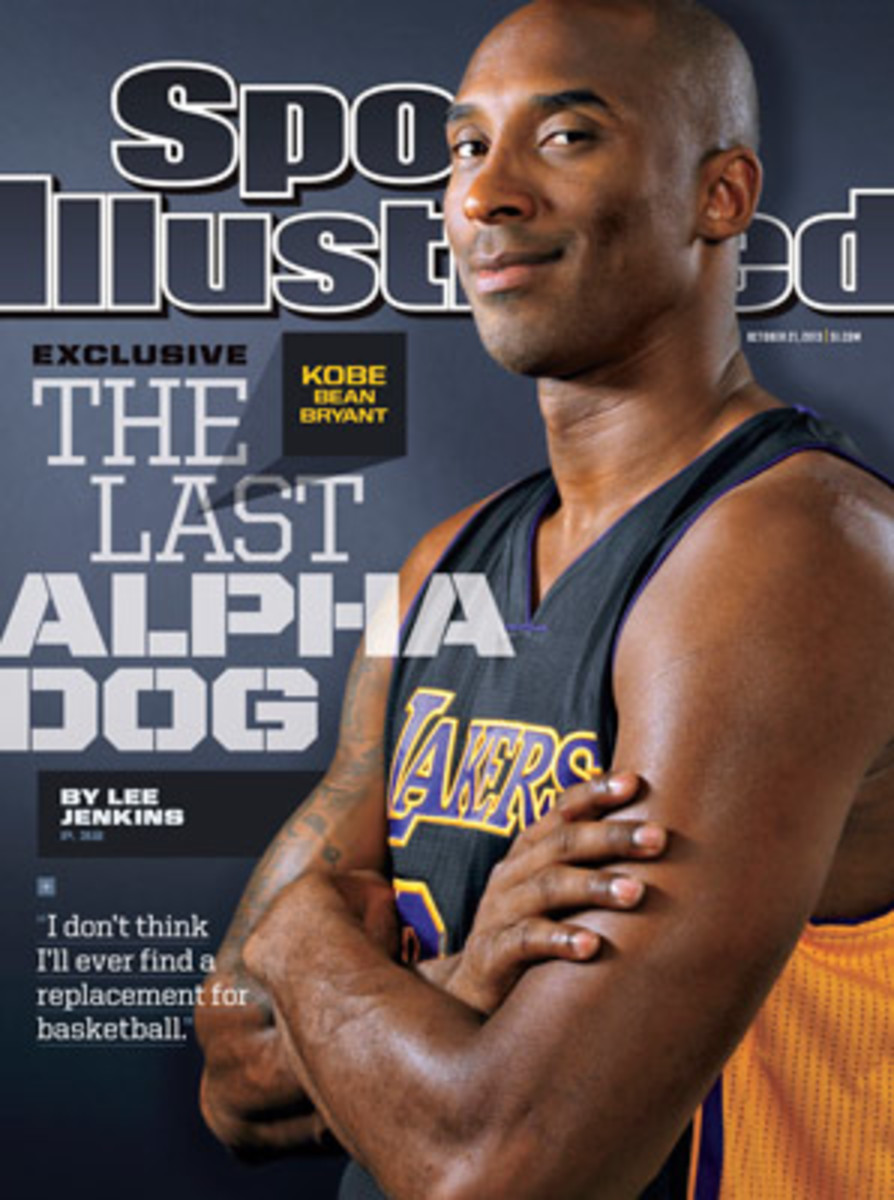
Summer of 1994 and Bryant struggles to sleep in a dorm room at Fairleigh Dickinson in Hackensack, N.J. He has earned one of the precious spots at the Adidas-sponsored ABCD camp, but he's not sure if he belongs. "I was lucky to grow up in Italy at a time when basketball in America was getting f----- up with AAU shuffling players through on strength and athleticism," Bryant says. "I missed all that, and instead I was taught extreme fundamentals: footwork, footwork, footwork, how to create space, how to handle the ball, how to protect the ball, how to shoot the ball. I wasn't the strongest kid at that camp. I wasn't the fastest. I wasn't the most athletic. I was probably the most skillful, but that didn't matter. It was all about the 360 windmill dunks."
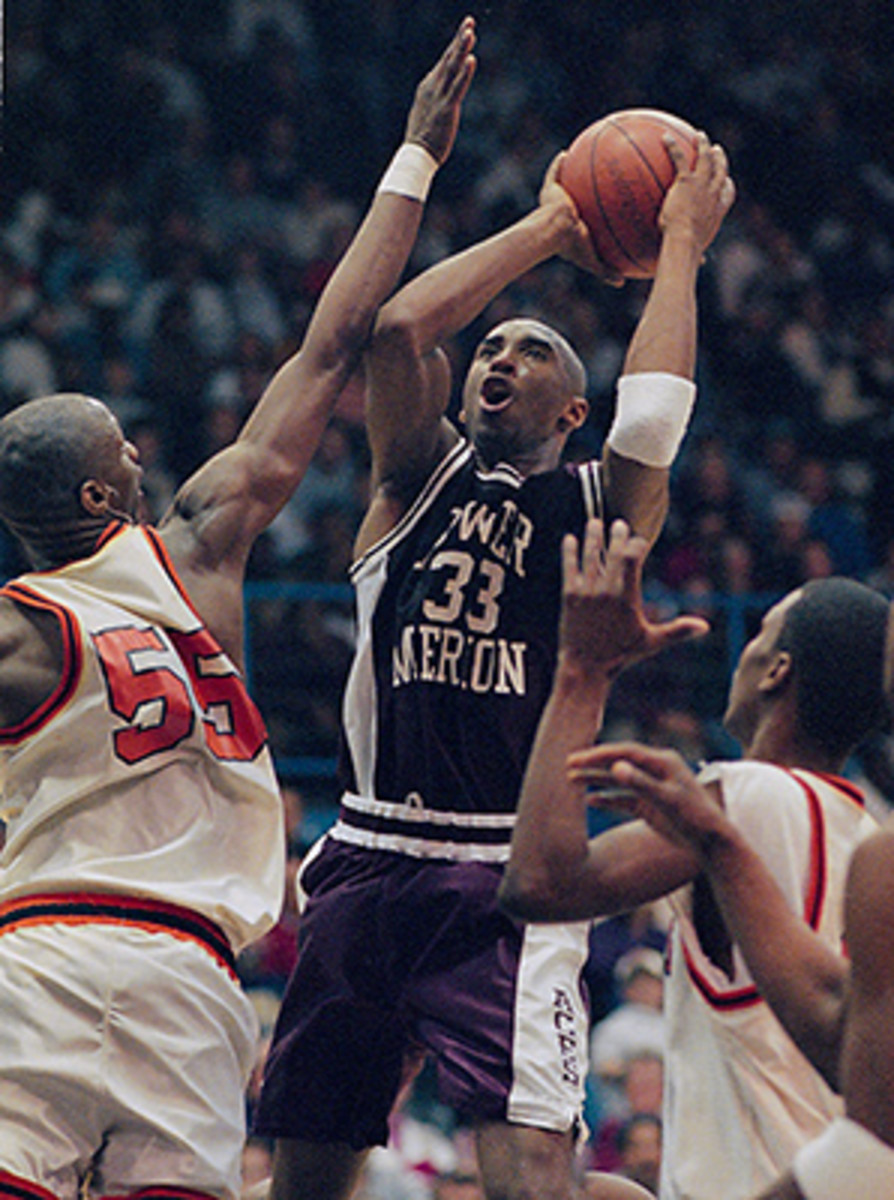
Summer of 2007 and O.J. Mayo, the No. 1 high school player in the country, attends the Kobe Basketball Academy at Loyola Marymount. Mayo asks Bryant if they can work out together. "Yeah," Bryant responds, "I'll pick you up at three." The next evening Mayo sees Bryant and asks, "Where were you?" Bryant looks confused. "Three in the morning," he says. "Not three in the afternoon." Mayo slinks away. The back-patting era, however long it lasted, is over. "I can't relate to lazy people," Bryant says, speaking generally, not about Mayo. "We don't speak the same language. I don't understand you. I don't want to understand you. Go over there. If I drive somebody too hard, and he feels like he's over-committing to the game and cracks because of it, I don't want to go to battle with him in the seventh game anyway. ... Some guys don't want this. It's too much. It's too uncomfortable. If that's the case, then we can't play together. It won't work. I believe you need a confrontational crew. If I have to resort to this [shaking his head] instead of telling you that you're being lazy and f------ up, then we'll never resolve anything."
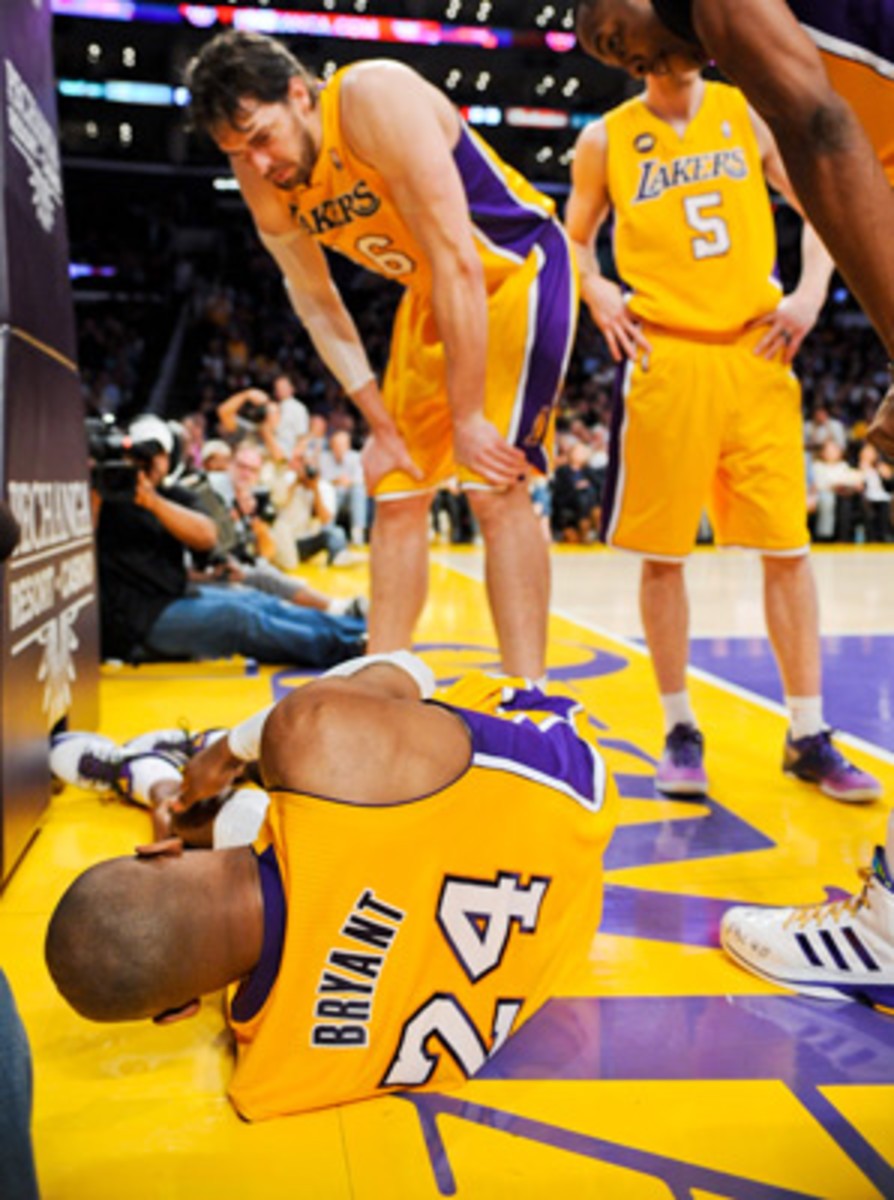
"Maybe I won't have as much explosion," Bryant says. "Maybe I'll be slower. Maybe I'll lose quickness. But I have other options. It's like Floyd Mayweather in the ring. There's a reason he's still at the top after all these years. He's the most fundamentally sound boxer of all time. He can fight myriad styles at myriad tempos. He can throw fast punches or off-speed punches, and he can throw them from odd angles."
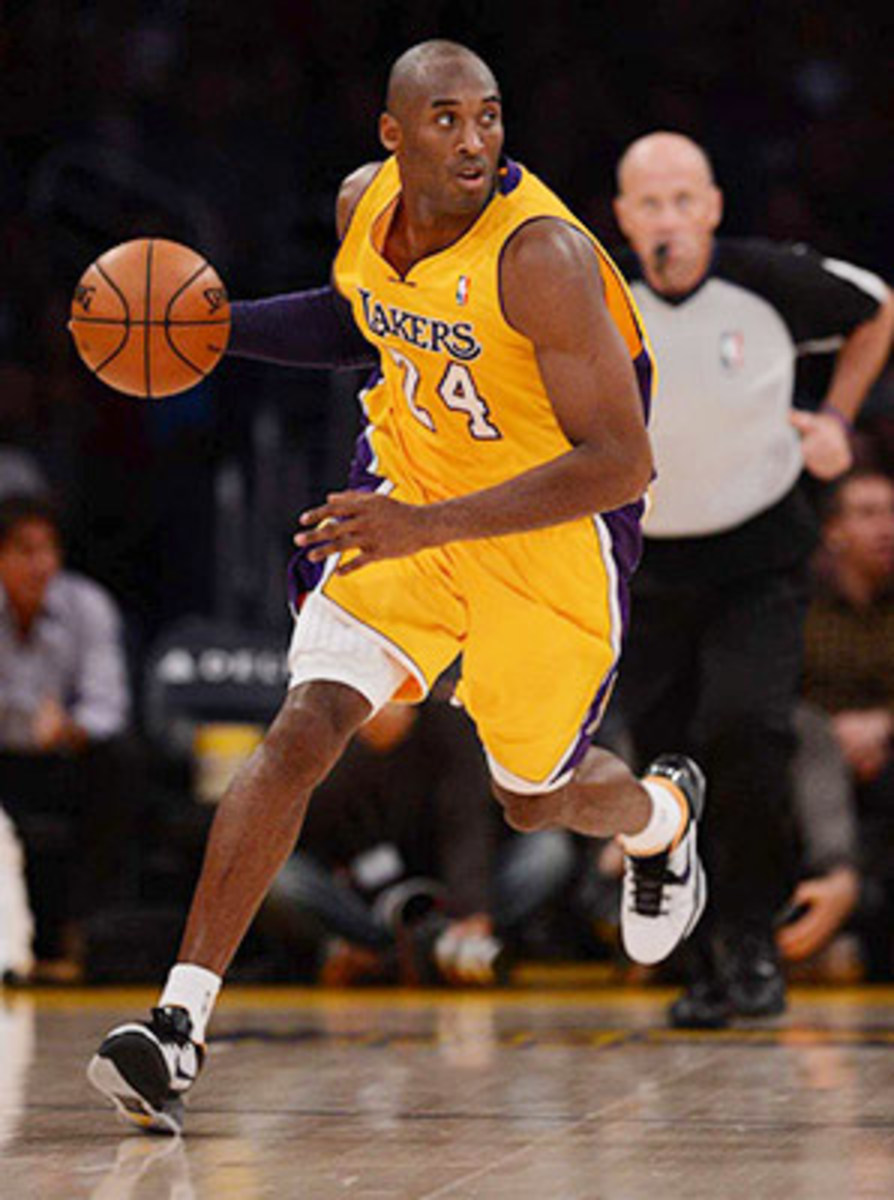
"Hey," he told her, after the tears dried. "You want to see Daddy cry?" He took her home and fished out the DVD from Game 6 of the 2008 Finals. They sat together and watched the Lakers get mortified in Boston. Then he popped in Game 7 of the 2010 Finals, and they marinated in the vindication. There, in one unforgettable double feature, was the evolution, the making of a man, the healing of a scar.
